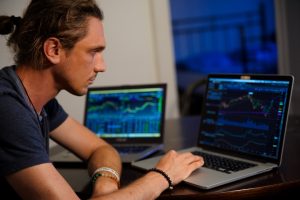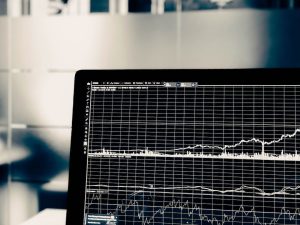Forex, also known as foreign exchange or FX, is the largest financial market in the world, with trillions of dollars traded daily. Forex trading involves buying and selling currencies with the aim of making a profit. To trade forex, traders need a forex account, which is a type of brokerage account that enables them to access the forex market.
A forex account is a platform that allows traders to buy and sell currencies with the help of a forex broker. The forex broker acts as an intermediary between the trader and the market, providing access to the trading platform, market analysis, charting tools, and other features that are necessary for successful forex trading.
Forex accounts come in different forms, but the most common are demo accounts and live accounts. A demo account is a simulation of a real trading account, where traders can practice trading without risking real money. Demo accounts are ideal for beginners who want to learn the basics of forex trading or for experienced traders who want to test their new strategies before implementing them with real money.
On the other hand, a live account is a real trading account that involves actual money. With a live account, traders can buy and sell currencies and make profits or losses, depending on their trading decisions. Live accounts require traders to deposit a minimum amount of money with the forex broker to start trading.
Forex accounts can be opened with any forex broker, but traders need to do their due diligence to find a reputable broker that offers competitive spreads, low commissions, and a reliable trading platform. The forex broker should also be regulated by a reputable financial regulator, such as the Financial Conduct Authority (FCA) in the UK, the National Futures Association (NFA) in the US, or the Australian Securities and Investments Commission (ASIC) in Australia.
To open a forex account, traders need to provide some personal information, such as their name, address, and date of birth, as well as their trading experience and financial situation. Forex brokers also require traders to provide some documents for verification, such as a passport or driver’s license, and a utility bill or bank statement as proof of address.
Once the forex account is opened, traders can fund it using various payment methods, such as credit cards, bank transfers, or e-wallets. The minimum deposit required to open a forex account varies depending on the broker, but it usually ranges from $100 to $500.
Once the forex account is funded, traders can start trading by placing orders on the trading platform. Forex trading involves buying a currency at a lower price and selling it at a higher price, or selling a currency at a higher price and buying it back at a lower price, with the aim of making a profit. Forex trading is risky, and traders can lose their entire investment if they do not manage their risk properly.
To manage risk, traders should use risk management tools, such as stop-loss orders, which automatically close a trade if the price reaches a certain level, or take-profit orders, which close a trade when the price reaches a certain profit target. Traders should also use proper position sizing, which means they should only risk a small percentage of their account balance on each trade.
In conclusion, a forex account is a necessary tool for anyone who wants to trade forex. Forex accounts come in different forms, such as demo accounts and live accounts, and traders should choose a reputable forex broker that offers a reliable trading platform and competitive trading conditions. Forex trading is risky, but with proper risk management and trading strategies, traders can make profits in the largest financial market in the world.






